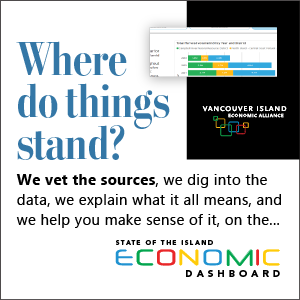CANADA – A new Canadian Imperial Bank of Commerce poll finds that 65 per cent of Canadians don’t seek expert advice to get retirement ready, which may lead to misconceptions about the value of contributing to a Registered Retirement Savings Plan (RRSP).
According to the poll, two in five Canadians see “no point” in investing in an RRSP, and two-thirds believe a Tax-Free Savings Account (TFSA) is a better savings vehicle as it’s completely tax-free.
“Several myths about RRSPs have been circulating in recent years, which are unfairly giving them a bit of a bad rap and Canadians are asking if an RRSP is still the way to go,” says Jamie Golombek, Managing Director, Tax & Estate Planning, CIBC Financial Planning and Advice.
“While everyone’s retirement needs will be different, it’s important to take the time to build a retirement plan to ensure you have sufficient funds to live the lifestyle you want, cover unexpected expenses such as health or care costs, or leave a legacy for heirs.”
“RRSPs should still be the primary retirement savings vehicle for most Canadians, and in many cases, can be your best option,” says Golombek.
In his new report and video, In Defense of RRSPs: Dispelling Common RRSP Myths, Golombek debunks some of the common myths behind the recent decline in RRSP contributions to help Canadians sort through the confusion and get retirement ready.
Key poll findings:
- Barely half (51 per cent) say their RRSP is, or will be, among their top sources of retirement income or expected retirement income
- 39 per cent believe there’s ‘no point’ investing in an RRSP since all the savings are paid back in taxes when Canadians retire
- 67 per cent believe TFSAs are a better way to save because they are completely tax-free
- 54 per cent don’t understand the tax consequences associated with an RRSP upon their own or their spouse’s death
- Only a third – 35 per cent – seek expert advice when planning for retirement, and
- Nearly one quarter – 22 per cent – rely on information from family and friends when figuring out how to best save and plan for retirement plus nearly a third – 31 per cent – of Canadians plan for retirement on their own.
Almost two in five – 39 per cent – don’t plan to make an RRSP contribution and 19 per cent aren’t sure if they should or not. Almost three in five – 57 per cent – of Canadians say saving for retirement is complicated, and wish they knew what strategy was best for them, yet few seek out expert advice.
“The danger comes in not seeking advice from a qualified financial advisor or planner, and instead relying on misinformation and cocktail party banter to make important financial decisions,” says Golombek.
Saving for retirement is a touchy subject. Some Canadians expect to spend less, while others find that expenses either stay the same or increase from travelling, new hobbies, or health-related expenses, he says. Whatever the desired lifestyle, income from government benefits or an employer pension, if eligible, is likely to fall short.
“Perhaps the biggest misconceptions about RRSPs is that they’re pointless given you’ll still pay tax in future, while a TFSA provides a completely tax-free source of income,” says Mr. Golombek.
“But, the fact is, although a TFSA may be a better choice for those currently in a lower tax bracket or early in their income-earning years, an RRSP can provide a completely tax-free rate of return and is frequently the best option for retirement savings.”
In his report, Golombek illustrates how even with the deferred tax bill on RRSP income in retirement, investing in an RRSP or TFSA beats investing in non-registered accounts. For those whose tax rate is lower in the year of withdrawal, there is an even better rate of return on the RRSP investment.
“The bottom line is that there’s no point having non-registered investments unless you have maxed out your TFSA or RRSP room,” he says.
While respondents cited ‘not having enough money to save’ as the top reason for not having an RRSP, Mr. Golombek says most Canadians could save a bit more if we understood the risks and rewards of doing so, which is why early financially planning is critically important.
“While some Canadians tend to leave their RRSP decisions to the last minute and squeeze them in before the deadline, contributing even small amounts monthly can make a big difference over time and leave you with more savings in your pocket,” he adds.




